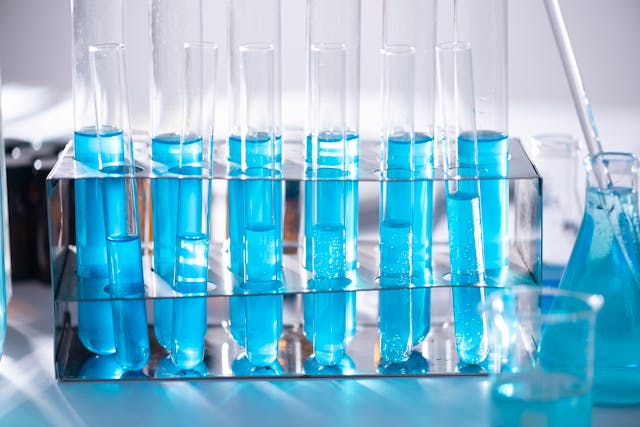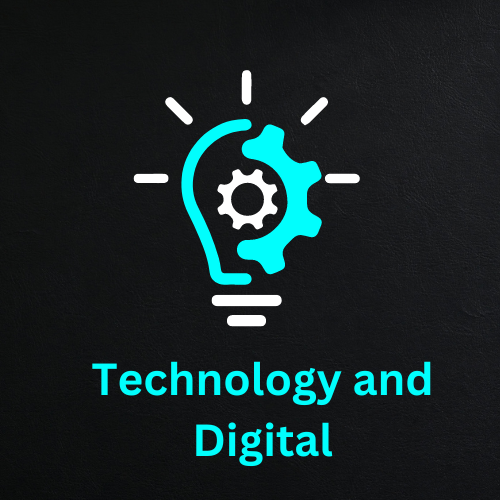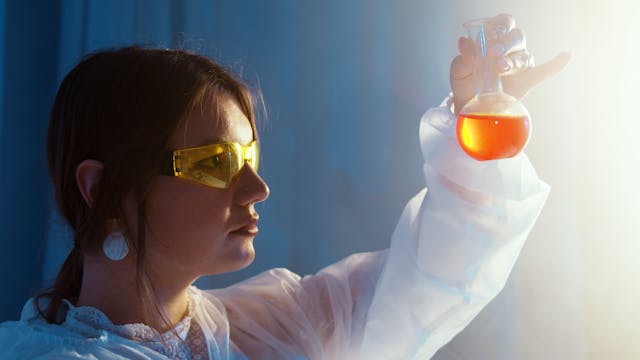
Biotechnology and Beyond Exploring the Limits of Human Enhancement
Welcome to the exciting world of human enhancement, where biotechnology is pushing the boundaries of what it means to be human. Imagine a future where we can enhance our physical abilities, sharpen our minds, and even rewrite our genetic code. Sounds like science fiction, right? Well, it’s not. Biotechnology is making these possibilities a reality, and it’s revolutionizing the way we think about human potential.
Brief Overview of Biotechnology
Biotechnology is a broad field that combines biology with technology to manipulate living organisms and biological systems. It encompasses a range of techniques and applications, from genetic engineering to pharmaceutical development, and it plays a crucial role in advancing human health and capabilities.
The Evolution of Human Enhancement
Human enhancement isn’t a new concept. Throughout history, humans have sought ways to improve their abilities, from using simple tools to developing advanced medical treatments. However, the advent of biotechnology has accelerated this evolution, opening up new frontiers and opportunities for enhancing human life.
The Basics of Biotechnology
What is Biotechnology?
At its core, biotechnology involves using biological systems or organisms to develop new technologies and products. This can include anything from agricultural innovations to medical breakthroughs. The goal is to harness the power of nature to solve problems and improve our quality of life.
Historical Background
Biotechnology has ancient roots, with early examples including the use of yeast in bread-making and fermentation processes for brewing beer. However, modern biotechnology began to take shape in the 20th century with the discovery of DNA and the development of genetic engineering techniques.
Key Areas of Biotechnology
- Medical Biotechnology: Focuses on developing treatments and diagnostics for diseases.
- Agricultural Biotechnology: Involves creating genetically modified crops to improve yield and resistance.
- Industrial Biotechnology: Uses biological processes for industrial purposes, such as biofuels and bioplastics.
Human Enhancement: A Closer Look
Definition and Scope
Human enhancement refers to any attempt to temporarily or permanently overcome the current limitations of the human body through natural or artificial means. This can include physical, cognitive, and genetic enhancements.
Types of Human Enhancements
Physical Enhancements
These involve improving the body’s physical capabilities, such as strength, endurance, or sensory abilities. Examples include advanced prosthetics and performance-enhancing drugs.
Cognitive Enhancements
These aim to boost mental functions like memory, attention, and intelligence. Techniques can range from neurotechnology to nootropic drugs.
Genetic Enhancements
These involve altering the genetic code to enhance certain traits or prevent diseases. CRISPR is a notable tool in this area, allowing for precise genetic modifications.
The Role of Genetic Engineering
Understanding Genetic Engineering
Genetic engineering is the direct manipulation of an organism’s DNA to alter its characteristics. This can be done by adding, removing, or modifying genes.
CRISPR: A Revolutionary Tool
CRISPR (Clustered Regularly Interspaced Short Palindromic Repeats) has revolutionized genetic engineering by making it easier and more precise. It allows scientists to target specific genes and make exact changes, opening up new possibilities for treating genetic disorders and enhancing human traits.
Ethical Considerations
While genetic engineering holds great promise, it also raises significant ethical questions. Issues such as genetic inequality, consent, and unintended consequences must be carefully considered.
Neurotechnology: Enhancing the Mind
Brain-Computer Interfaces
Brain-computer interfaces (BCIs) enable direct communication between the brain and external devices. This technology can restore lost functions for people with disabilities and even enhance cognitive abilities for healthy individuals.
Cognitive Enhancements
Neurotechnology can also enhance cognitive functions. For example, transcranial magnetic stimulation (TMS) can improve memory and learning capabilities.
Case Studies and Applications
BCIs have been used to help paralyzed individuals control prosthetic limbs and even communicate through thought. These advancements highlight the transformative potential of neurotechnology.
Bionics and Prosthetics: Redefining Physical Limits
The Development of Bionics
Bionics combines biology with electronics to create advanced prosthetics that mimic natural limbs. These devices can restore mobility and functionality for amputees, greatly improving their quality of life.
Advanced Prosthetics
Modern prosthetics are highly sophisticated, with features like sensory feedback and mind control. These advancements allow users to perform complex tasks and regain a sense of normalcy.
Impact on Quality of Life
Advanced prosthetics not only restore physical capabilities but also have a profound impact on mental and emotional well-being. They offer a sense of independence and empowerment that is invaluable to users.
Pharmacological Enhancements
Nootropics and Cognitive Enhancers
Nootropics, also known as smart drugs, are substances that enhance cognitive function. They can improve memory, focus, and creativity, making them popular among students and professionals.
Performance-Enhancing Drugs
Performance-enhancing drugs (PEDs) are used to boost physical performance, particularly in sports. While effective, they raise ethical and health concerns.
Safety and Ethical Issues
The use of pharmacological enhancements poses risks, including dependency and adverse health effects. Ethical issues also arise, such as fairness in competitive environments and long-term impacts on health.
The Future of Human Enhancement
Potential Advancements
The future of human enhancement is full of possibilities. Advances in biotechnology, AI, and robotics will likely lead to even more sophisticated enhancements, from gene therapies to brain augmentation.
Integration with AI and Robotics
AI and robotics will play a crucial role in the future of human enhancement. AI can assist in developing personalized treatments, while robotics can enhance physical capabilities beyond natural limits.
Predictions and Speculations
Experts predict that human enhancement will become increasingly common, potentially leading to a future where enhanced abilities are the norm rather than the exception.
Ethical and Social Implications
The Moral Debate
Human enhancement raises numerous ethical questions. Is it right to enhance our abilities beyond natural limits? How do we ensure equal access to these technologies? These are complex issues that society must address.
Societal Impact
Enhanced individuals may have advantages in various aspects of life, leading to potential social divides. Addressing these disparities will be crucial to ensuring a fair and just society.
Regulatory Challenges
Regulating human enhancement technologies will be challenging. Governments must balance innovation with safety and ethical considerations, developing frameworks that protect individuals and society.
Case Studies: Real-World Applications
Success Stories
There are numerous success stories in the field of human enhancement. For instance, gene therapies have cured genetic disorders, and neurotechnology has restored lost functions for many individuals.
Challenges Faced
Despite these successes, challenges remain. Technological limitations, ethical dilemmas, and societal resistance are significant hurdles that must be overcome.
Lessons Learned
The experiences from real-world applications provide valuable lessons for future developments. Collaboration between scientists, ethicists, and policymakers will be key to navigating the complexities of human enhancement.
Public Perception and Acceptance
Media Representation
Media plays a significant role in shaping public perception of human enhancement. Positive portrayals can generate interest and acceptance, while negative portrayals can lead to fear and resistance.
Public Opinion
Public opinion on human enhancement is mixed. While many are excited about the possibilities, others are concerned about ethical and safety issues. Education and transparent communication will be crucial in addressing these concerns.
The Role of Education
Educating the public about the benefits and risks of human enhancement is essential. Clear, accurate information can help dispel myths and foster informed opinions.
The Business of Biotechnology
Industry Overview
The biotechnology industry is rapidly growing, driven by advancements in science and technology. It encompasses a wide range of sectors, from pharmaceuticals to agriculture.
Key Players
Major companies and research institutions are leading the charge in biotechnology innovation. Their contributions are crucial to the development and commercialization of new technologies.
Market Trends
Trends in the biotechnology market include a focus on personalized medicine, increased investment in R&D, and the growing importance of ethical considerations in business practices.
Government and Policy
Regulatory Frameworks
Governments around the world are developing regulatory frameworks to oversee the development and use of human enhancement technologies. These frameworks aim to ensure safety, efficacy, and ethical compliance.
International Policies
International cooperation is essential for addressing the global nature of biotechnology. Harmonizing policies and regulations can facilitate innovation while protecting human rights and safety.
Future Directions
Future policy directions will likely focus on balancing innovation with ethical considerations. Ensuring equitable access to enhancement technologies will also be a key priority.
Challenges and Controversies
Ethical Dilemmas
Human enhancement poses numerous ethical dilemmas, such as the potential for genetic inequality and the implications of altering human nature. These issues require careful consideration and ongoing dialogue.
Technological Limitations
Despite significant advancements, technological limitations still exist. Overcoming these challenges will require continued research and innovation.
Societal Resistance
Societal resistance to human enhancement is a significant barrier. Addressing concerns through education and transparent communication will be crucial in gaining public acceptance.
Conclusion
Recap of Key Points
Biotechnology is transforming human enhancement, offering exciting possibilities for improving physical, cognitive, and genetic abilities. However, it also raises significant ethical and social questions.
The Road Ahead
The future of human enhancement is full of potential. Continued advancements in biotechnology, AI, and robotics will drive innovation, while ethical considerations will shape the development and use of these technologies.
Final Thoughts
As we explore the limits of human enhancement, it’s essential to balance the pursuit of innovation with ethical and societal considerations. By doing so, we can harness the power of biotechnology to create a better future for all.




